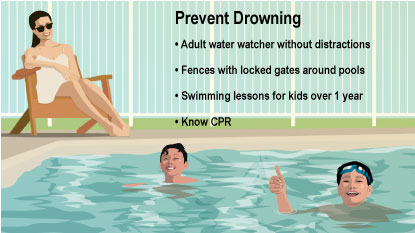- Home
- Parents Home
- Allergy Center
- Asthma Center
- Cancer Center
- Diabetes Center
- A to Z Dictionary
- Emotions & Behavior
- First Aid & Safety
- Food Allergy Center
- General Health
- Growth & Development
- Flu Center
- Heart Health
- Homework Help Center
- Infections
- Diseases & Conditions
- Nutrition & Fitness Center
- Play & Learn Center
- School & Family Life
- Pregnancy Center
- Newborn Center
- Q&A
- Recipes
- Sports Medicine Center
- Doctors & Hospitals
- Videos
- Para Padres
- Home
- Kids Home
- Asthma Center
- Cancer Center
- Movies & More
- Diabetes Center
- Getting Help
- Feelings
- Puberty & Growing Up
- Health Problems of Grown-Ups
- Health Problems
- Homework Center
- How the Body Works
- Illnesses & Injuries
- Nutrition & Fitness Center
- Recipes & Cooking
- Staying Healthy
- Stay Safe Center
- Relax & Unwind Center
- Q&A
- Heart Center
- Videos
- Staying Safe
- Kids' Medical Dictionary
- Para Niños
- Home
- Teens Home
- Asthma Center
- Be Your Best Self Center
- Cancer Center
- Diabetes Center
- Diseases & Conditions
- Drugs & Alcohol
- Expert Answers (Q&A)
- Flu Center
- Homework Help Center
- Infections
- Managing Your Medical Care
- Managing Your Weight
- Nutrition & Fitness Center
- Recipes
- Safety & First Aid
- School & Work
- Sexual Health
- Sports Center
- Stress & Coping Center
- Videos
- Your Body
- Your Mind
- Para Adolescentes
Pool Safety
Having a pool, pond, spa, or hot tub on your property is a huge responsibility when it comes to safety. Drowning can happen in seconds to minutes, is often completely silent, and is a leading cause of death in children and teens.
Use these layers of protection to keep kids safe in and around in water. You never know which one will save a life.
Assign a Water Watcher
There should always be an adult water watcher while children are in and around a pool or any body of water. The water watcher should be within an arm’s length of young children and beginner swimmers. They should always keep their eyes on kids who are in the water, even older children who can swim. The water watcher should not use a cellphone, socialize, drink alcohol, or do anything else that might be a distraction. At a party, have adults take turns as water watcher. Even if a lifeguard is on duty, a water watcher also should watch kids.
Use Fences/Alarms/Covers
All pools (including above-ground pools) and hot tubs should have a fence around them with a self-closing, locked gate. Add even more protection with door and window alarms that chime when opened to alert a parent that a child is going outside (you can find inexpensive, simple alarms online) and pool alarms that go off when someone enters the pool. If you can’t fence around a spa or hot tub, be sure they are securely covered when you aren’t using them.
Have Kids Take Swim Lessons
Schedule swimming lessons for kids when they’re at least 1 year old. Swim lessons do not replace the need for a water watcher, but learning to swim makes drowning less likely. Check with your local recreation centers or search the Red Cross website for classes taught by a qualified instructor. Ask about free or reduced rate lessons. If you don't know how to swim, consider taking lessons too.
Learn CPR
Every parent should know how and when to do CPR. It brings blood to the heart, brain, and other organs and starts breathing until health care providers can give the person advanced life support. Done correctly, CPR can save a person's life.
Make Sure Everyone Follows the Pool Rules
Teach your kids and all caregivers these pool rules:
- Do not run around the pool.
- No pushing or dunking in the pool.
- Never dive from the side of the pool or a diving board unless a pool is at least 9 feet deep. If the depth isn’t posted, don’t dive!
- Get out of the pool right away in bad weather, especially if there's lightning.
Also:
- Do not let kids use mermaid tails or fins in the pool. They can make it hard to swim and lead to drowning.
- Floaties do not prevent drowning. Kids who wear them still need the same supervision as those without them.
Set a good example on how to use a pool safely. Follow all safety rules and don’t use alcohol or drugs while in or around a pool.


© 1995- The Nemours Foundation. KidsHealth® is a registered trademark of The Nemours Foundation. All rights reserved.
Images sourced by The Nemours Foundation and Getty Images.
